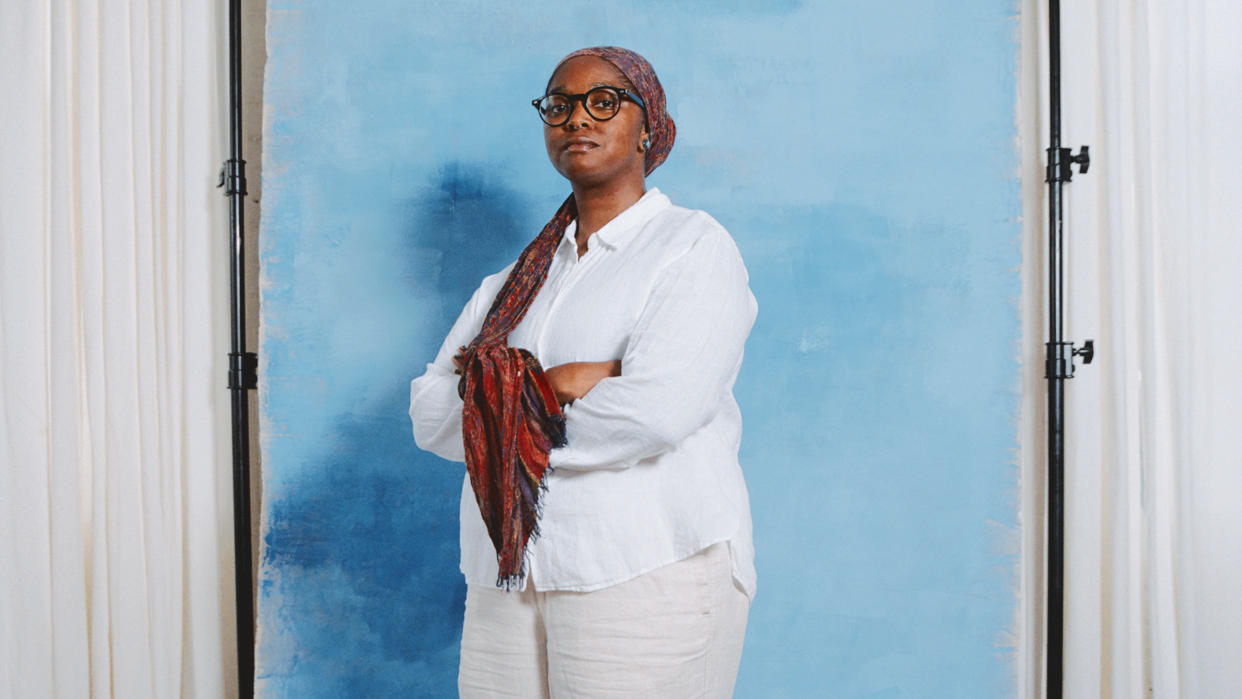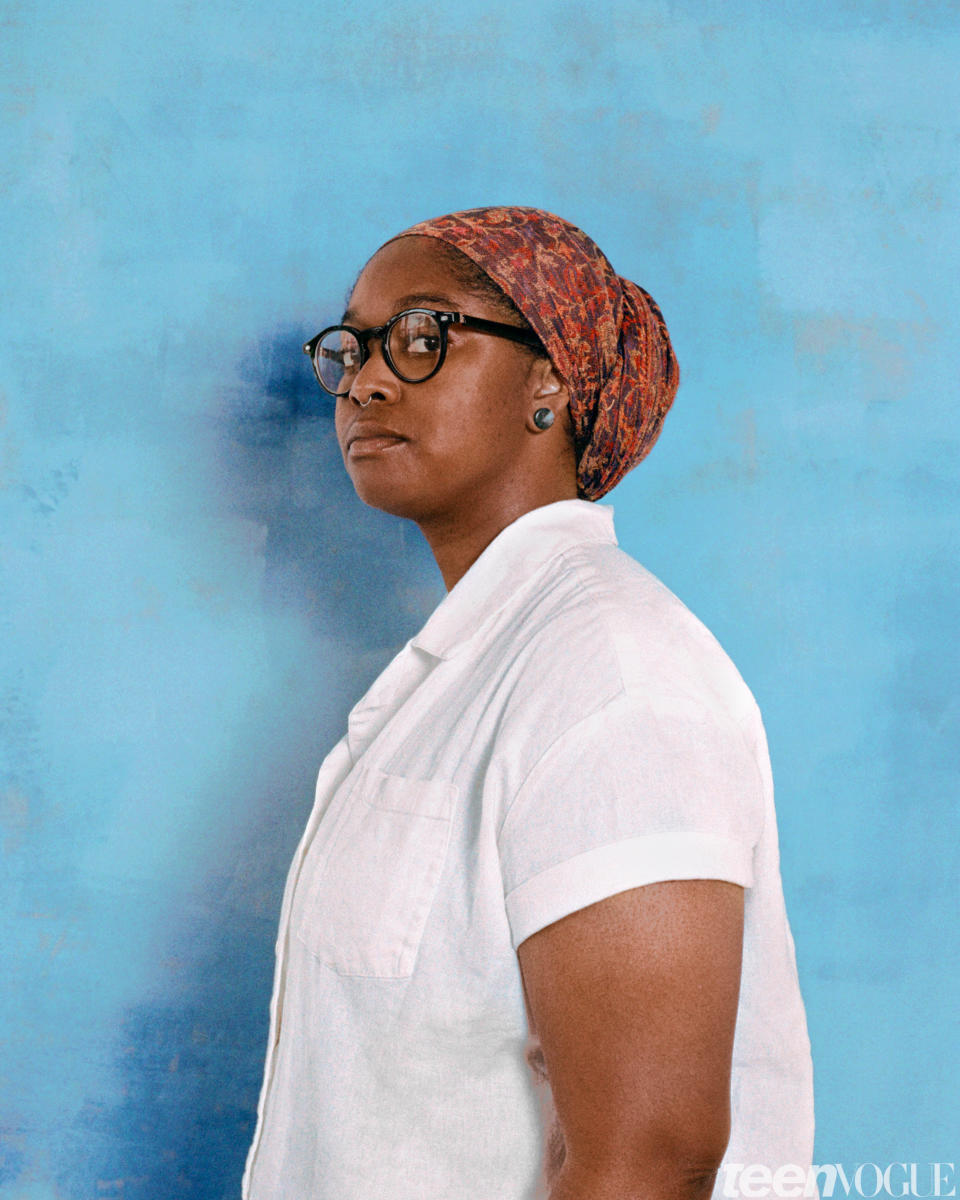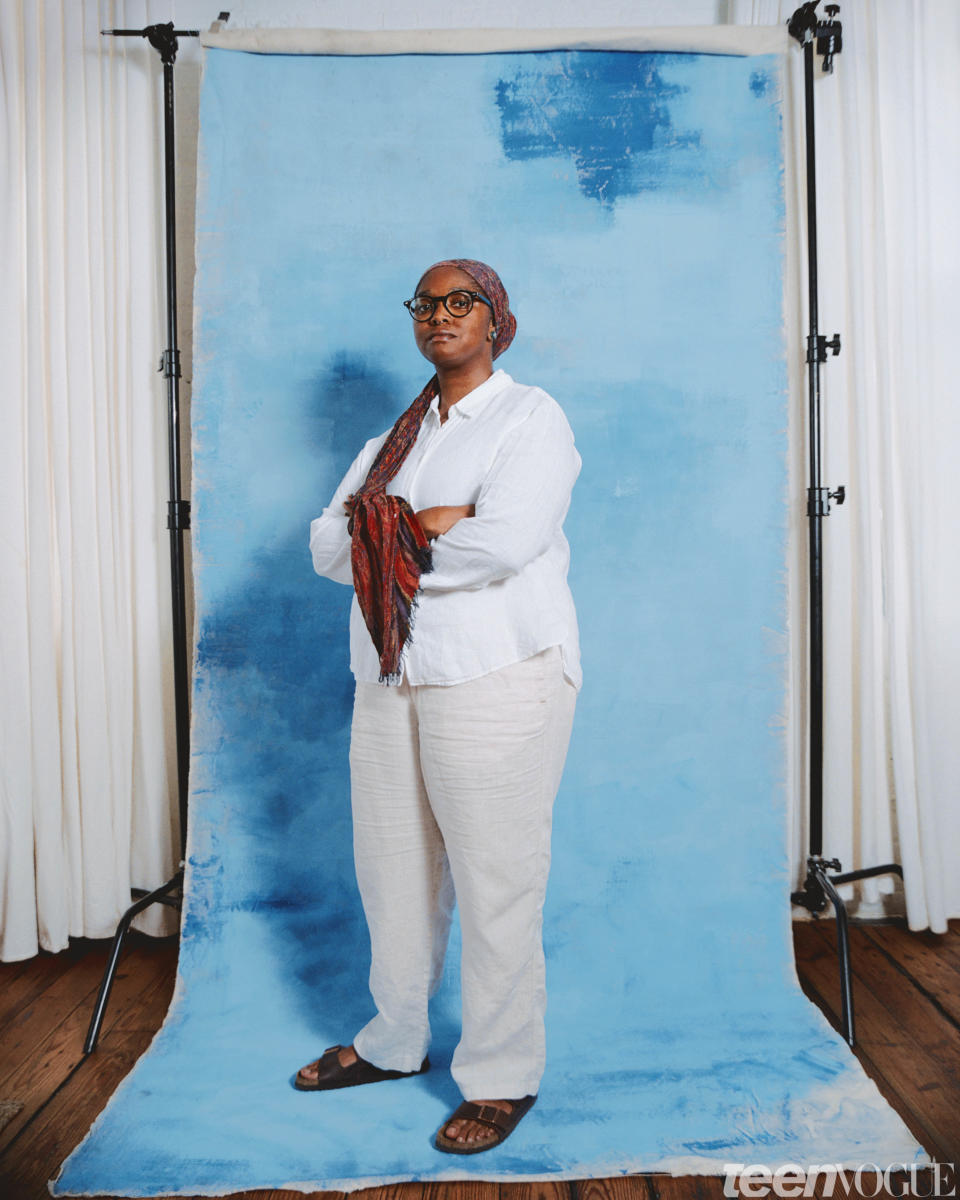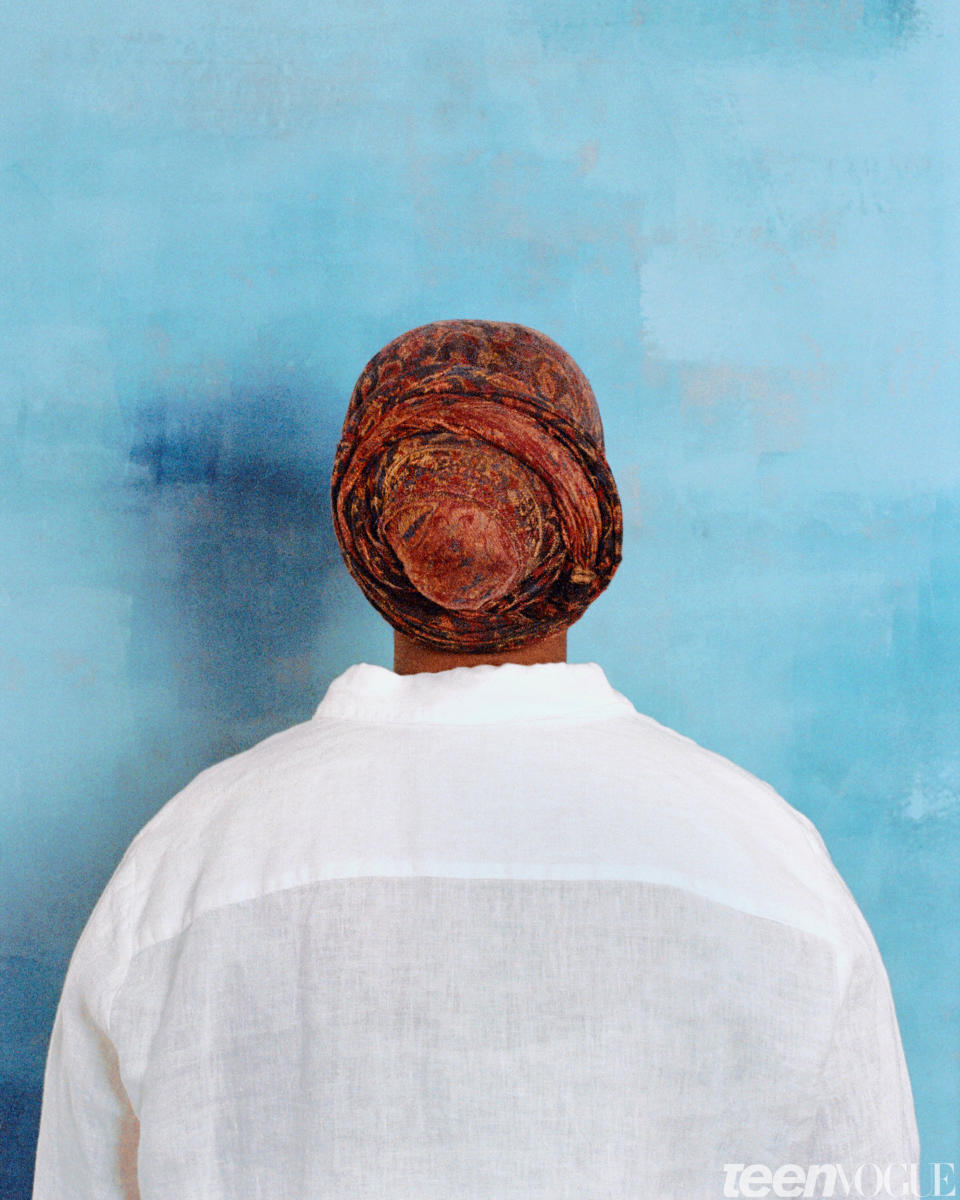Rep. Mauree Turner: What I Learned as a Suppressed Elected Official


Assalamualaikum. My name is Mauree Turner, my pronouns are they/them/their(s), and I'm the outgoing representative for Oklahoma's 88th House District.
In 2020, I was elected to the Oklahoma legislature. I was the first Muslim and first openly trans person to be elected to the state legislature, and the first openly nonbinary person elected to a state-level position in US history. As my time in the legislature now comes to an end, I've been reflecting on my years there: on the people I've been able to represent; the policy that has come out of our state capitol — policy that, more often than not, directly attacks the communities we are in charge of equitably representing; and the intensifying political suppression that has taken place.
Year after year I have seen that when communities believe in and act in their power, the state legislature pushes back against the people. I’ve experienced late nights in the legislative chamber when pro-gun activists were shouting so loudly outside the building that we heard it from the chamber inside, but I never found a state trooper in sight. Yet I always noticed an increase in law enforcement officers if we even put up anti-trans legislation for consideration at all. I've seen state legislators walk up to the gallery, while we were in session, and shout in the faces of Oklahomans who were upset that their elected officials were trying to redefine protesting under a statute intended for organized crime (like in Atlanta, where Stop Cop City protesters are being charged under the same sort of law, known as a RICO statute).
This state’s leadership has made it very clear who is welcome here and who is not. We especially saw that with the death of 16-year-old Nex Benedict. Some state leaders misgendered, deadnamed, and used Nex's death as a way to outwardly push their hate-filled agenda.
My time in office also showed me that visibility without protection creates a target. I ran to represent House District 88, to show up for communities that haven’t been physically represented, and for our values. I got to represent folks who also want to build an equitable and liberated society, folks who ask, “What if we exercised compassion and care instead of revenge and authority?”
When our communities tell politicians we aren’t being heard, represented, or even seen, politicians tell us that if we want to change the system, we have to engage in it, be a part of it. I did that in 2020, and in 2022 when I ran for reelection. Then the censure came. I was stripped of all my committee assignments — silenced by my own colleagues in the legislature for standing up for trans health care.
We engaged in the system and they still tried to keep our voices out. The censure was a moment of truth for a lot of folks. At the time of my censure, we had a sitting member, Terry O’Donnell, facing a grand jury indictment. O’Donnell was looking at five felonies and three misdemeanors total, counts that included conspiracy, perjury, and misconduct in office. A month after my censure, the Oklahoma attorney general said O'Donnell was "guilty," yet dismissed the charges. And this year, O’Donnell pushed a piece of legislation to allow politicians to use campaign funds to pay for legal fees. The proposed bill was further evidence that the rules remain a tool to keep folks with community-centered power in check, while the powerful go unchecked.
Following my censure, other electeds denied me access to our capitol resources, like presenting in committee. However, Terry O’Donnell, facing felony and misdemeanor charges for abuse of power, got to pursue full access to the capitol we are all elected to serve in. He ultimately resigned his leadership post in the legislature, remaining in office, but it was his choice — the sort of choice I wasn't allowed.
Still, politics are changing. As our cis, heterosexual, predominantly white, predominantly older politicians cling to their authoritarian policies, the youth of the nation are galvanizing communities, whether college encampments, workplace unions, or campaign fundraisers. Gen Z knows that we deserve so much more, and that pushes me to want to be better. Gen Z members are brave and outgoing, because what other choice have we given them? Yet they call us to be better, to create a world where, as my mom says, we all thrive, not just survive.
And as we continue to grow in our collective power, especially in a way that is visible and tangible to elected officials, we have to be vigilant. In Oklahoma, where I witnessed the weaponization of policy against us, one of my first actions was proposing a gender-neutral dress code for lawmakers. Our House of Representatives has a dress code that purposefully discards folks who live beyond the gender binary.
The Republican majority tabled my proposal. By the end of that year, 2021, Governor Kevin Stitt had issued a directive to the state department of health to stop issuing gender-neutral birth certificates. This move contradicted an out-of-court settlement the state's health department had agreed to, which demonstrated to the people of Oklahoma how unaccountable the governor assumed he was to legal agreements.
The following year, we saw an increase in policy that was explicitly anti-trans in Oklahoma, specifically in the areas of public education, health care, sports, civil rights, and bathroom access (not to mention proposed anti-2SLGBTQIA+ legislation that might miss a national look).



During my time in office, so many two-spirit, trans, and gender-nonconforming (2SGNCT+) folks and allies came to the legislature to fight this legislation, especially House Bill 2177 from the 2023 legislative session. One section proposed forbidding trans folks of all ages from using insurance on gender-affirming care, which would essentially force Oklahomans to either stay and de-transition or leave and live. While that legislation ultimately wasn't enacted, later that year, Governor Stitt signed into law a measure that banned gender-affirming care for youth. The previous session, House Bill 1888, a bill that would take money from state-funded institutions that engaged in inclusive education on sexual orientation or gender identities, was also stopped after intense public pressure.
Beyond the attacks on 2SGNCT+ people, though, we’ve seen policy that drives the underfunding of Oklahoma's only historically Black university, Langston University. According to the federal government, Langston has been underfunded by the state of Oklahoma to the tune of $418,989,272 over the past 30 years, under the Second Morrill Act. This year, we passed the harmful House Bill 4156, which would criminalize people based on their lack of immigration documentation. (The Department of Justice filed a lawsuit over the legislation, saying it violates the US Constitution.)
While all this was underway, I was always in the crosshairs for rule infractions that others routinely broke. Simultaneously, I always had to think about different forms of advocacy for the people of House District 88 and myself, when other Democrats never would. I’m thankful the people of 88 helped me with this. I think about the times Democratic leadership told me they were going to discount my vote because of the clothes I was wearing. I had to verbally make the point that if we know racism, sexism, transphobia, and bigotry exist outside of the capitol, we must also know it plays a role inside the building.
If we only needed our freedom fighters, organizers, politicians, and community members to acknowledge that systems of oppression exist, then we would be in a much different place. But advocacy for communities left out of policy and positive outcomes has always been led by the most marginalized — those who sit at the intersection of injustices; those most tired of being continuously carved out of solutions. That’s how we get change: We push back hard, keeping our eyes and action set on liberation, and practicing restorative justice with our community members engaged in liberation work.
We need action. We need elected officials committed to learning about and combatting policy shortfalls and purposeful exclusion. We need folks in office who will risk some of their political capital to ensure our communities are seen at our intersections, and that all of the intersections are enshrined in the policy. We need elected officials who won’t put community members in closets for their future political aspirations, separating our humanity from theirs.
Yes, there are policymakers targeting our most vulnerable community members, making separate and unequal laws in the 21st century; but we are also in a time when we are practicing triage and care for one another in real-time, practicing joy and community. We are seeing robust, local-level organizing to get people beyond survival. I am thankful I got to be a part of the legacy and history of Oklahoma's House District 88, and I'm grateful for the inspiration I find in everything around me — especially Gen Z.
As Michael Masutha and William Rowland, two leaders of the Disabled People South Africa movement, put it in 1993: Nothing about us without us.

Photo Credits
Photographer Lindsay Perryman
Photo Assistant Sophie Ming
Design Director Emily Zirimis
Designer Liz Coulbourn
Associate Visuals Editor Bea Oyster
Editorial Credits
Editor-in-Chief Versha Sharma
Executive Editor Dani Kwateng
Politics Director Allegra Kirkland
News & Politics Editor Lex McMenamin
Contributing Editor Alyssa Hardy
Associate Director of Audience Development and Analytics Mandy Velez Tatti
Sr. Social Media Manager Honestine Fraser
Social Media Manager Jillian Selzer
Copy Editor Dawn Rebecky
Research Editor Shayna Posses
Stay up-to-date with the politics team. Sign up for the Teen Vogue Take
Originally Appeared on Teen Vogue
More great activism coverage from Teen Vogue:


